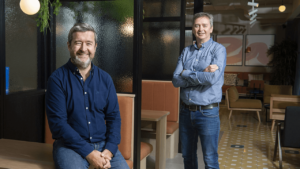This is the view of Richard Della Rocca, President of ISO Claims Analytics, Verisk Analytics, who in a recent interview with Reinsurance News highlighted how the world of claims is adapting to the pandemic.
“Insurers had to quickly pivot to remote claims handling, often shifting resources and accelerating digital claims projects,” Della Rocca said.
“With many claims professionals continuing to work from home for the indefinite future, organisations are actively investing in data and technology that can automate claim insights in the absence of field adjusting activities.
“A portion of these digital projects are reducing manual touchpoints, enabling claims handlers to make faster decisions and improving overall productivity in a remote work environment.”
He added that technology is critical in the pandemic and its importance is expected to continue to be after this crisis is over.
“But it’s not just technology. It’s the combination of technology, data, and advanced analytics that makes the difference. Those three components streamline claims operations on the backend, which ultimately help claims professionals provide the continuity and service policyholders need,” Della Rocca explained.
“For example, if an insurer has a water leak that damages the basement, video collaboration tools allow the claimant to take a video of the damage on a phone and send it to an adjuster for estimation.
“Pricing data on the contents and materials damaged allow the adjuster to prepare a quick repair estimate, and fraud analytics evaluate various data points to ensure the loss is legitimate so the adjuster can fast-track payment.”
When asked about whether or not there’s any risk of COVID-19 driving additional loss adjustment expenses (LAE) to re/insurers, he claimed that whilst there’s always a risk, even with the effects of COVID-19 still unfolding, there’s not any evidence to show an impact on LAE.
“While there have been several severe catastrophe events, the timing and locations of those events didn’t overlap with high COVID spikes in the respective states. Therefore, catastrophe response plans weren’t put to the test,” he noted.
“Additionally, technology that facilitates remote claims processing reduces LAE. So, as virtual inspections continue to grow, they will reduce costs associated with claim handling.”
Della Rocca also explored how Verisk has helped the industry navigate unique challenges that has come with the COVID-19 pandemic.
He said: “Early in the pandemic, we provided free access to our video collaboration tool, ClaimXperience, to help companies inspect claims remotely. In April and May alone, the tool handled more than 190,000 virtual inspections.
“We’ve also helped improve anti-fraud efforts by adding COVID-19-specific fraud models to our provider fraud analytics solution to help carriers detect suspicious medical billing.
“Additionally, we’ve been providing clients with regular, industrywide COVID-19 claims trends from ISO ClaimSearch, the industry’s largest loss history database, to help them manage risk. We’re also offering up interesting industry COVID-19 insights based on data and observations from our PCS and Xactware businesses,” Della Rocca added.
He concluded that whilst moving forward, Verisk is assisting customers with digital transformation by providing solutions that facilitate low-touch claim handling across lines of business by leveraging new datasets and technologies, such as AI, predictive analytics, and digital forensics.
Source: Reinsurance News
Share this article:








